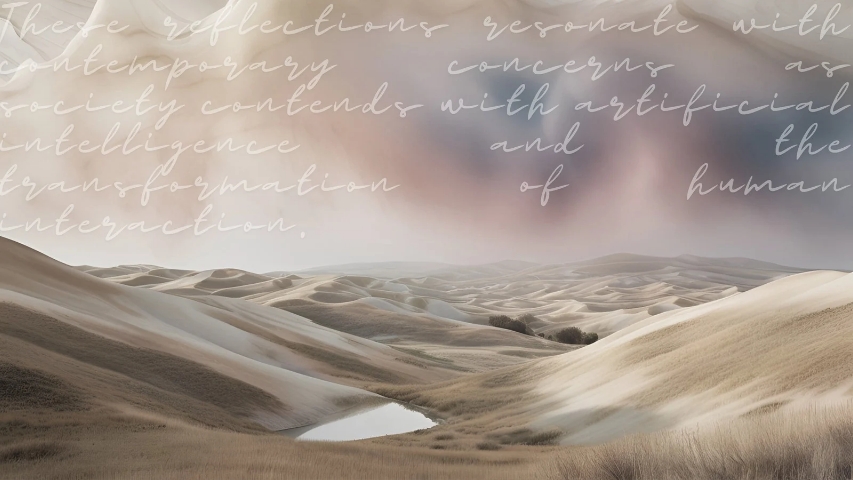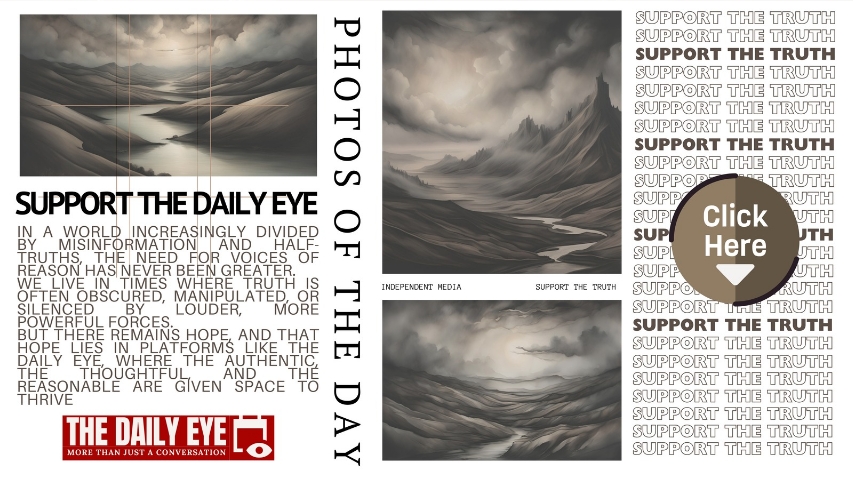
AI & TECH: NAVIGATING THE UNCERTAIN FUTURE
by Editorial Desk February 22 2025, 12:00 am Estimated Reading Time: 4 mins, 43 secsIn an era of AI dominance and rapid technological change, literature, science, and art remain essential, offering wisdom, creativity, and introspection to preserve human identity and consciousness in a digital world. The #Newsdesk finds out what thought leaders from across the world say…
As artificial intelligence, automation, and digital transformations reshape society, thinkers like Jhumpa Lahiri, Richard Dawkins, Andrea Long Chu, David Hajdu, and Bill Deresiewicz emphasize the enduring value of literature, science, and human creativity. Their perspectives offer solace in an age of uncertainty, reaffirming the irreplaceable role of consciousness, artistic expression, and critical thinking in a world increasingly dominated by AI. By revisiting past literary reflections on progress and upheaval, we find that embracing storytelling, intellectual depth, and slow thinking is vital to preserving humanity’s essence amidst rapid technological disruption.
In an era of AI dominance and technological change, literature, science, and art remain essential, offering introspection to preserve consciousness in a digital world. From the Industrial Revolution to the present digital upheaval, the human response to technological shifts has been captured in poetry and literature, reminding us of our adaptability. William Blake’s London mourned the mechanization of life in the wake of industrialization, T.S. Eliot’s The Waste Land lamented a fractured modern world, and Mary Shelley’s Frankenstein questioned the ethics of scientific overreach. These reflections resonate with contemporary concerns as society contends with artificial intelligence and the transformation of human interaction.

The Search for Meaning in an Age of Disruption
Jhumpa Lahiri’s reflections on Ovid’s Metamorphoses remind us that change is not a modern phenomenon—it is a constant in human history. In the same way that Ovid’s characters undergo profound transformations, Lahiri finds solace in literature’s ability to provide stability amid upheaval. The age-old tension between progress and human nature is reflected in the words of William Blake, who, in London, lamented the impact of industrialization on the human spirit, observing "the mind-forged manacles" that enslave individuals. Through storytelling, we navigate collective transformations, understanding that technological revolutions are just another chapter in humanity’s long narrative of adaptation and survival.
Richard Dawkins extends this conversation by addressing the nature of artificial intelligence and the philosophical problem of consciousness. In an era where AI can mimic human intelligence, Dawkins reassures us that machines, despite their computational prowess, lack subjective experience. While AI challenges how we define intelligence, it does not erase the fundamental biological and evolutionary uniqueness of human consciousness. Much like Frankenstein’s monster, AI represents both our deepest anxieties and our greatest ambitions—forcing us to examine the ethical implications of creating intelligence that mimics but does not experience human emotion.
Andrea Long Chu, meanwhile, critiques the performative nature of public discourse in an age of information overload. With AI now capable of generating opinions and rhetoric, Chu warns against the erosion of genuine conviction. Her insights urge individuals to reclaim the lost art of deep thinking, emphasizing the necessity of forming beliefs rooted in reflection rather than reactionary digital noise. This echoes T.S. Eliot’s The Waste Land, which portrays a fragmented world struggling to find meaning in an age of disillusionment, warning that without authentic engagement, we risk losing the very essence of human connection.
The Enduring Value of Human Creativity
As AI-generated art, music, and literature flood cultural spaces, David Hajdu’s analysis of machine-generated creativity provides crucial perspective. He reminds us that while technological innovations—from the player piano to digital synthesizers—have influenced artistic expression, they have never replaced the irreplaceable human element of emotion, interpretation, and nuance. AI may produce art, but it cannot imbue it with the lived experiences and personal stories that define human creativity. Just as Mary Shelley’s Frankenstein warned of the perils of forsaking ethical and artistic responsibility in the pursuit of innovation, Hajdu’s reflections encourage us to safeguard the emotional depth that makes art truly human.
Similarly, Bill Deresiewicz champions a return to deep intellectual engagement as a counterpoint to the rapid consumption of AI-generated content. He proposes an immersive retreat model to encourage contemplation in an age of instant information. Deresiewicz’s vision challenges the notion that efficiency and speed should dominate the pursuit of knowledge, advocating instead for a more deliberate and thoughtful approach to intellectual and creative endeavours. His plea for slow thinking mirrors the philosophical warnings in literature throughout history—whether it be Eliot’s call for renewed spirituality in modern life or Blake’s critique of the mechanical constraints imposed on human imagination.
Reclaiming Humanity in a Digital Age
Together, these voices offer a roadmap for navigating the anxieties of our time. Lahiri’s embrace of literature, Dawkins’ defence of human consciousness, Chu’s call for intellectual authenticity, Hajdu’s advocacy for human-led artistry, and Deresiewicz’s push for slow thinking all contribute to a broader dialogue on preserving what makes us fundamentally human.
As technology accelerates, these perspectives remind us that our greatest strength lies not in outpacing machines but in embracing the qualities that set us apart—our capacity for introspection, emotional depth, and creativity. The anxieties of the digital age find their echoes in past literature, and just as Blake, Eliot, and Shelley reflected on the human cost of industrial and scientific progress, today’s thinkers continue to stress the need for restraint. The key is not to resist change, but to ensure that, in our pursuit of progress, we do not lose sight of the essence of human experience.






-173X130.jpg)
-173X130.jpg)

-173X130.jpg)
-173X130.jpg)
-173X130.jpg)
-173X130.jpg)
-173X130.jpg)